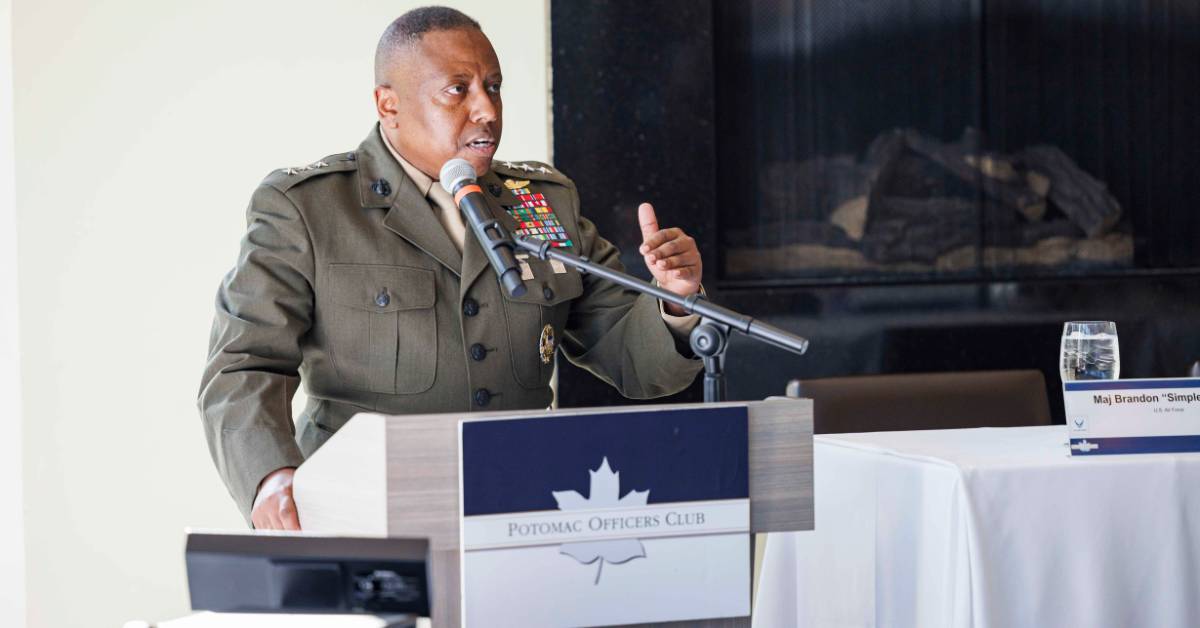Concepts like Combined Joint All-Domain Command and Control have brought coalition warfighting to the forefront of Department of Defense priorities, but the need to modernize relevant technologies and standards remains an obstacle to realizing this vision.
According to Lt. Gen. Dimitri Henry, director of intelligence, J2 for the DOD, the potential for change is “underpinned by our ability to communicate purely and quickly, and then share data across different services for one thing and across different coalitions.”

“By 2030, if we have not come up with a way that allows us to enhance our warfighting by being able to share data in a way that is transparent and specific to the data, then we will probably not fare as well as we could,” Henry cautioned during his keynote address at the Potomac Officers Club’s Joint Coalition Operations in 2030 Forum on Thursday.
Coalitions, he said, are built on ideas, but what “hampers almost every coalition is the ability to push data, to pull data and to use similar platforms that allow that to happen.”
“As we and the Joint Staff look to develop the force, one of the things that is clear to us is that we have to be able to do so with partners and allies,” Henry added.
He noted the United States’ strong ability to establish and operationalize coalitions and “do what needs to be done in a holistic way.” The issue the nation has encountered, he continued, is the lack of a platform that enables data sharing with its allies.
Henry pointed out that while the U.S. does have some related capabilities, they are “still not at the speed and scale and at the access” that is necessary.
As the technologies advance, he said, “we need to enable the partners to be able to have and make sense of what we’re making sense of.”
“In a lot of cases, if they had access to the same thing, they could help put it in context, because sometimes they have a better understanding, and most of the time they have a different understanding of why something is happening or not happening,” he said.
What happens in these scenarios, Henry noted, “is that the data was there, it was available to us, but it was not so much available to our partner.”
A major factor in why these capabilities have not fully matured is policy. Within the Intelligence Community, Henry said, policy has historically favored security over risk, but the entry of more young people into the workforce and new ideas from commercial entities have caused officials to rethink aspects of legacy information sharing standards.
“I think those policies exist for a reason. The question is if that reason is still valid or if the risk is worth changing the policy because you gain an advantage by a massive scale,” he said.

Get ready for the Potomac Officers Club’s next event – the 2024 Cyber Summit on June 6! During this gathering, you will have the opportunity to hear from even more government officials and industry leaders who will share their insights on the evolving cyber domain. Spots are still available, so head over to the Potomac Officers Club website to register now!




